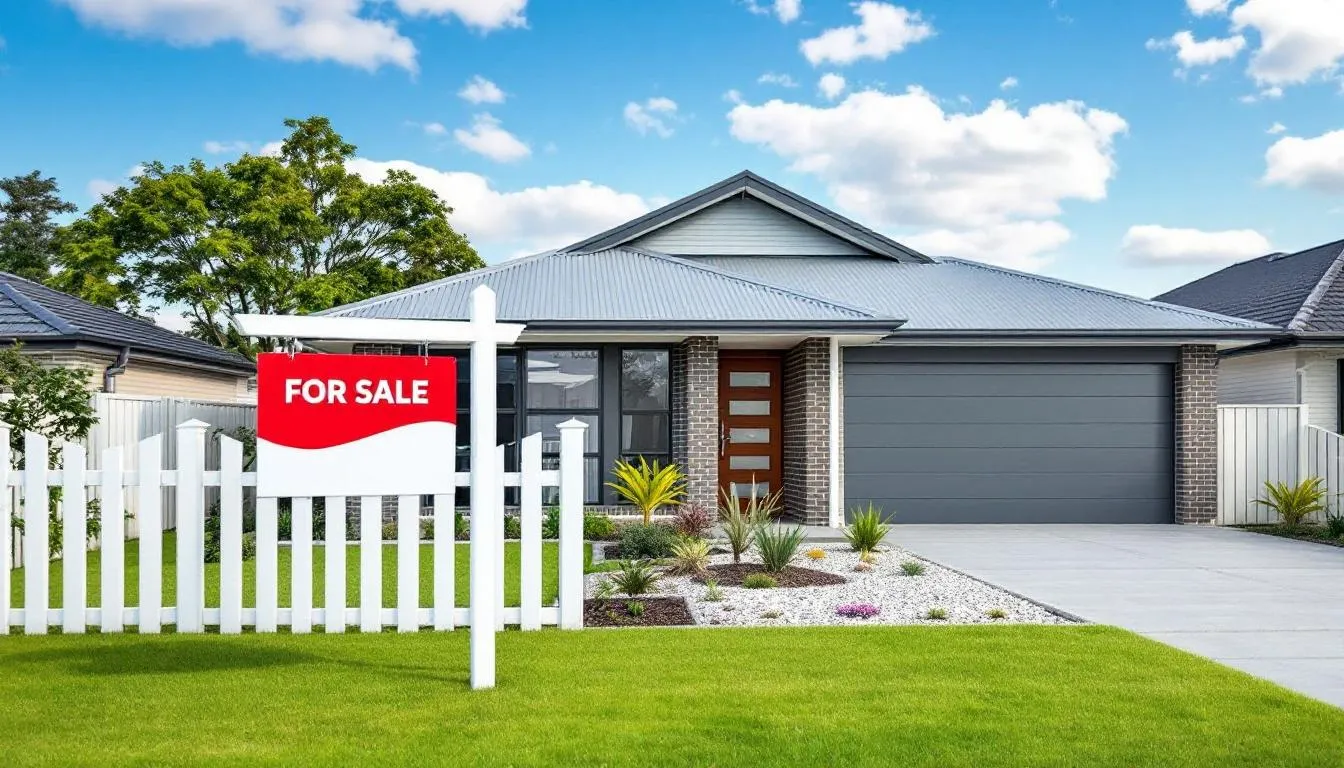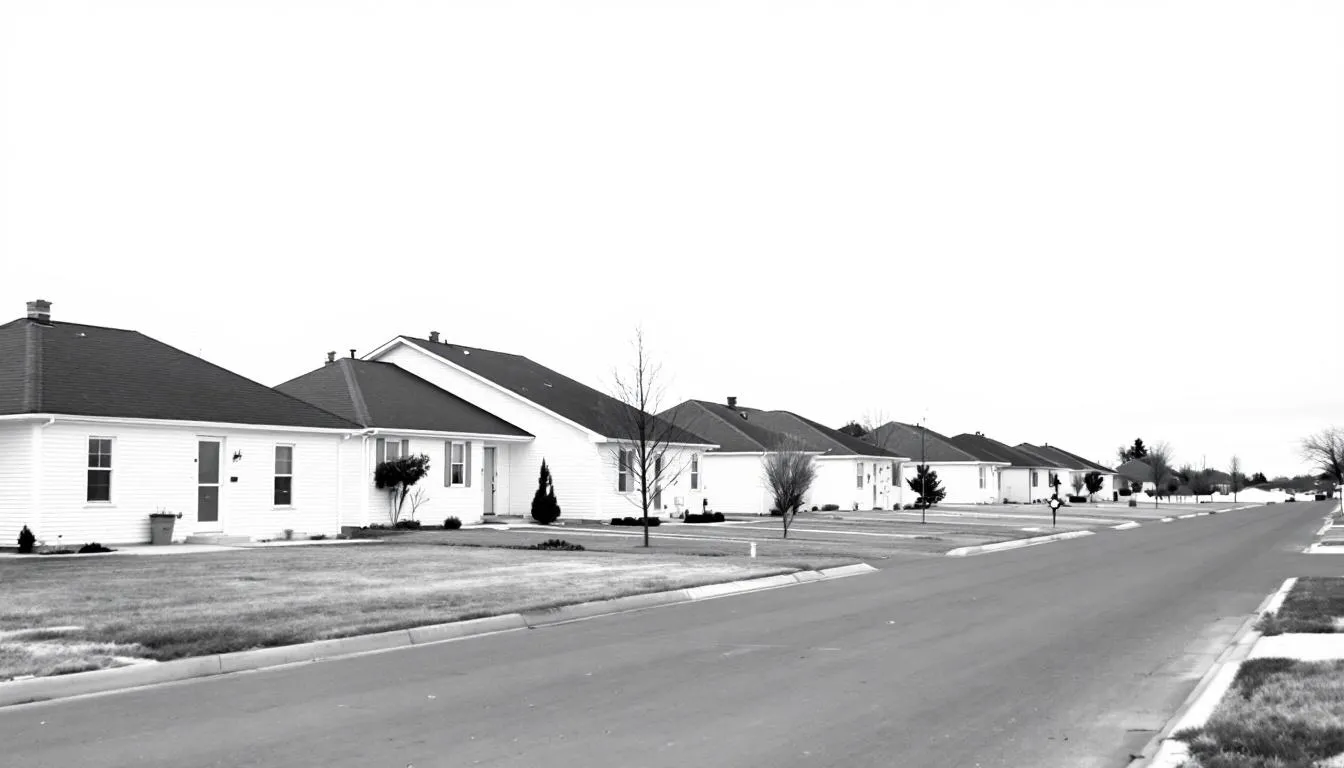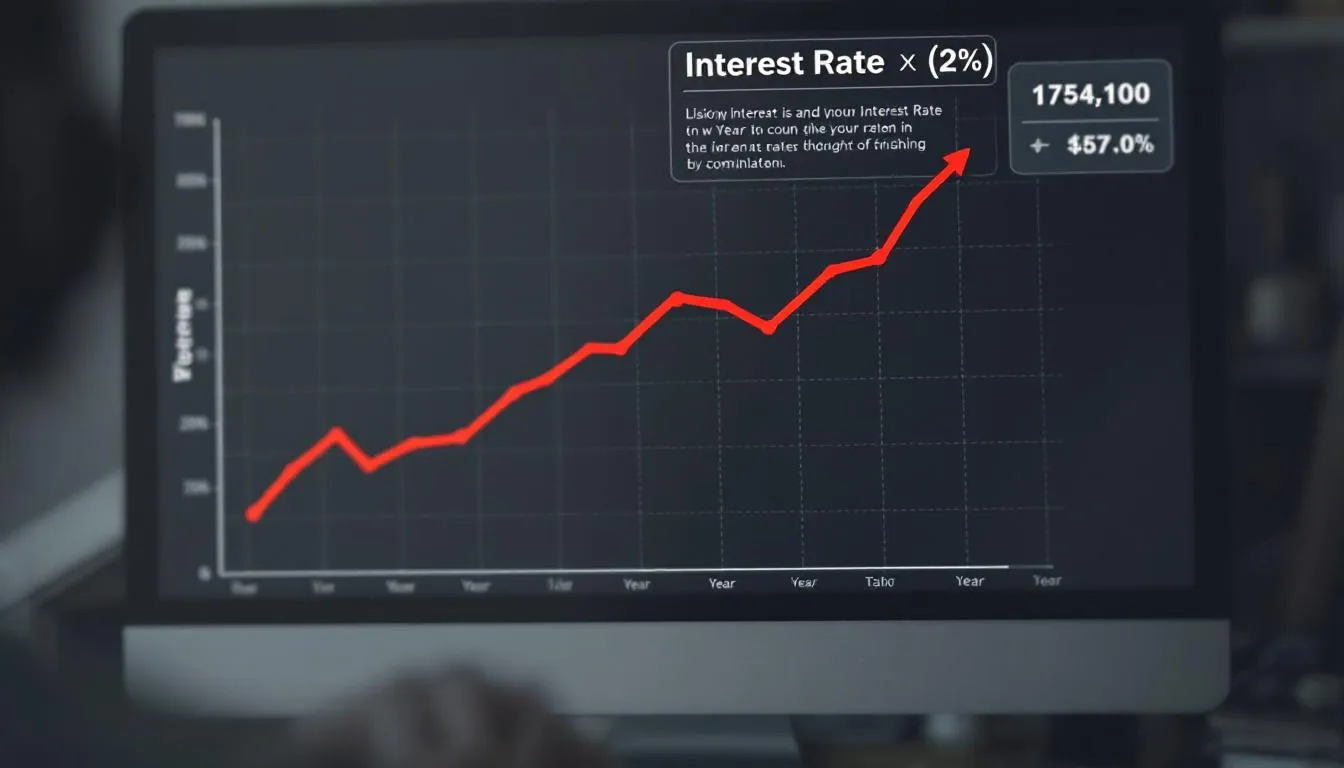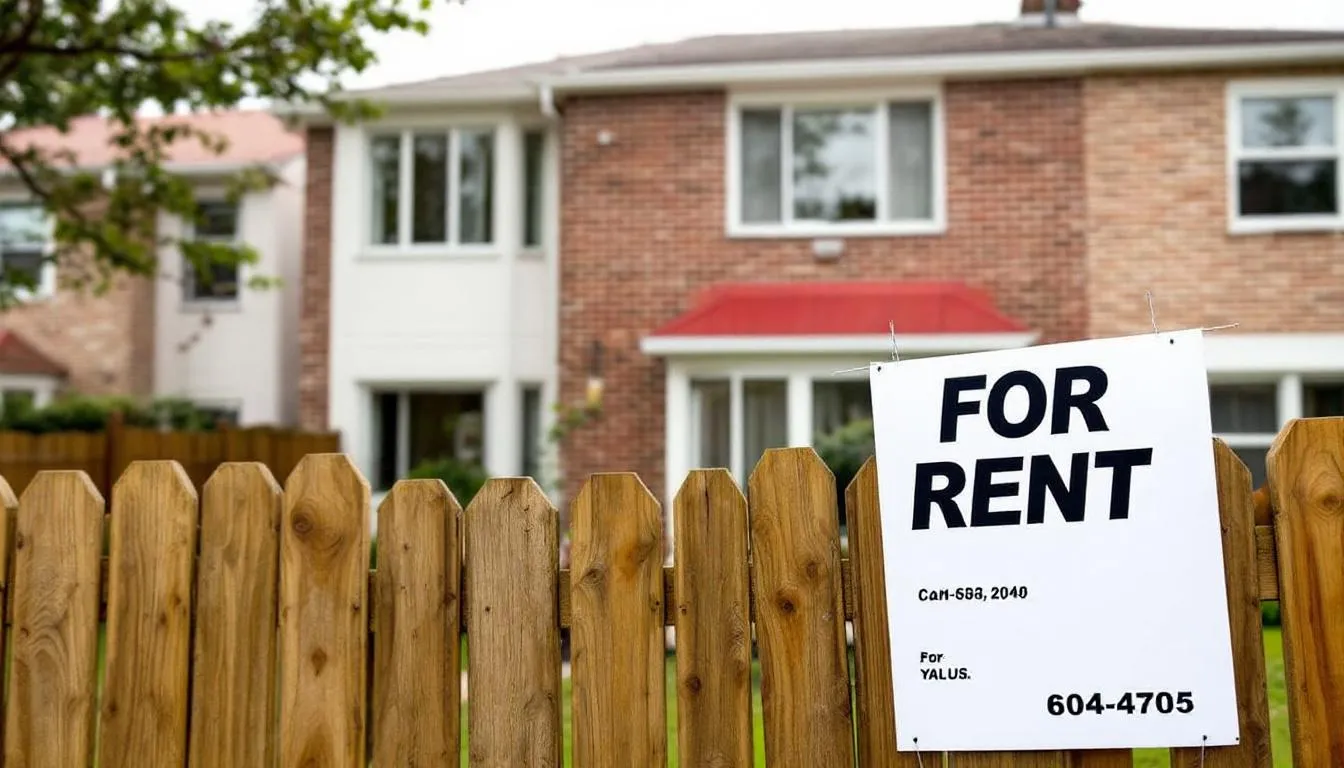- 🧠 78% of U.S. homebuyers expect mortgage rates to drop in the next year.
- ⚠️ Over 80% of homeowners are "locked in" with rates under 5%, limiting housing supply.
- 🏠 In cities like Las Vegas, homes still sell quickly despite high mortgage rates.
- 💸 Buyers waiting for lower rates might lose more through price appreciation than they save on interest.
- 💊 Experts suggest refinancing options can offset risks from buying during higher rate periods.

Mortgage Rates Drop: Should Homebuyers Wait?
Mortgage rates have gone down a bit lately. This has made some people feel a little hopeful. But many people who want to buy a home are still waiting. They hope for bigger rate cuts before they buy a home. In busy markets like Las Vegas, this waiting could cost them. There are few homes for sale, prices are going up, and many buyers still want homes. This adds pressure. More than 75% of U.S. homebuyers think mortgage rates will drop more. So, is this hope realistic? Or are these buyers taking a chance on something that might not happen?

What’s Fueling Homebuyers' Hopes for Lower Mortgage Rates?
The main reason people are not buying now is a common belief that mortgage rates will fall within the next year. A high 78% of homebuyers think mortgage rates will drop in the next 12 months, according to the Fannie Mae National Housing Survey (2023). This hope might seem fair. The Federal Reserve has said it could make money policy easier if inflation keeps going down.
How Mortgage Rates Are Determined
But knowing what really affects mortgage rates shows it's more complicated. The Federal Reserve does affect the wider economy by changing the federal funds rate. But long-term bonds directly tie to mortgage rates. This is especially true for 10-year U.S. Treasury yields.
Mortgage lenders set interest rates based on several factors:
- The yield on government bonds
- Inflation expectations
- Economic outlook
- Credit risk
- Loan-specific factors (LTV ratio, credit score)
So, even if the Federal Reserve says it will pause or cut its main rates, mortgage interest rates might not drop at the same time. Lenders often keep a buffer, or "spread," between bond yields and mortgage rates. This helps lower risk, especially when the economy is uncertain.
Teaser Rates and Short-Term Thinking
Another thing that makes buyers feel confident is the way low starting rates are promoted. This is for adjustable-rate mortgages (ARMs) or special deals from builders. These options might have lower upfront costs. But they are usually linked to shorter periods and have more risk later on. Future rate changes can make monthly budgets hard to predict. This is true if rates stay high.

The Psychology of Waiting: Hope vs. Economic Reality
Financial decisions are not made alone. Behavioral economics shows that people tend to have mental shortcuts, especially when things are unsure. One common thing affecting homebuyers now is loss aversion. This is a fear of making "the wrong move." For example, buying before rates drop a lot or the market goes down.
Paralysis in the Face of Uncertainty
People face big decisions and many unknowns (like where rates are going, how prices will move, or job chances). So, many buyers prefer to do... nothing. Psychologists call this decision paralysis. Unfortunately, in real estate, doing nothing often means missing chances and paying more.
Beyond the Interest Rate: The Larger Cost Equation
A home purchase is not just about the interest rate. It's about what you can afford over time. Things like:
- Wage growth
- Inflation-adjusted housing prices
- Job stability
- The cost of renting vs. owning
...all play a big part in whether waiting helps you. In some markets, a lower rate might be a swap for higher home prices or more competition.

Are We in a New Normal? Inventory, Trapped Sellers & Tight Supply
Perhaps the most important change in today's real estate market is not mortgage interest rates. It's how many homes are for sale. More than 80% of current U.S. homeowners have a mortgage rate below 5%, as reported by Redfin in 2023. This “golden handcuff” situation stops current homeowners from selling. They would need a much higher interest loan for any new home they bought.
The Impact of Locked-In Mortgages
Homeowners with very low rates are “rate-locked.” They do not want to swap their current mortgage for one that might double their monthly payment. The result? Fewer homes are listed for sale, making the supply tighter. This happens even as demand stays steady or goes up.
- Fewer move-up sellers are listing homes
- Investors are holding onto properties longer
- New construction isn't fully closing the gap
Las Vegas: An Amplified Version of the National Market
Las Vegas shows these supply problems well. Local realtor Steve Hawks says the city's market stays competitive, especially for homes priced right. New listings still get offers fast, often in days. This is because many people are moving in, there are lots of investors, and few new homes are built because of land limits and not enough workers.

The Hidden Costs of Waiting for Better Mortgage Rates
Many buyers think they're being smart with their money by waiting. But the real cost of waiting can be very high.
Key Considerations for Homebuyers:
- Price going up: Home values in many markets are going up again. A 5% annual gain on a $400,000 home adds $20,000.
- Lost equity: Homeownership builds equity from the first payment. Waiting a year means missing out on both principal reduction and appreciation.
- Rising rents: Rental rates are always going up in markets like Las Vegas. Rent paid is money that doesn’t go toward building your own equity.
Example Scenario
Let’s say a buyer is eyeing a $400,000 home:
- At a 7% rate, the monthly principal and interest is around $2,660.
- If rates drop to 6.5%, that same mortgage costs about $2,530—a $130/month saving.
- However, if the home’s price rises 5% in the meantime, it becomes a $420,000 home.
- The new mortgage, even at the lower rate, still ends up costing $2,655.
In this case, waiting for a half-point rate drop actually results in a higher overall purchase cost.

Las Vegas: A Market That Plays by Its Own Rules
Las Vegas continues to go against national trends in many ways. It has strong job growth, good tax rules, and it offers a certain way of life. The city remains a main place people move to from California, Texas, and other states.
Key Drivers of Market Strength in Las Vegas:
- Continued population growth: Las Vegas added over 40,000 residents in 2023.
- Demand for rentals and investment properties: Many buyers are turning to Las Vegas for the money it can make from rent.
- Low home inventory: The city’s number of homes for sale is among the lowest in the country.
As Steve Hawks notes, “The Vegas market favors quick action. The good deals go fast, and buyers waiting ‘for the perfect moment’ are often left watching prices go up.”

Winning Strategies for Today’s Cautious Homebuyer
Buyers do not need to wait forever. They can use many smart ways to lower risk. They can secure a home before prices or rates change more.
1. Lock and Float Options
Some lenders offer rate lock programs that let buyers secure today’s home prices. If rates drop before closing, or soon after buying, during a set time, you can “float down” to the better rate.
2. Seller Concessions
In a slow or seasonal sales period, many sellers—and even large builders—offer concessions such as:
- Rate buydown payments
- Closing cost assistance
- Free appliance upgrades or landscaping
These perks can greatly lower your costs at first and over time.
3. Value Shopping in Overlooked Areas
Buyers who look in more places, for neighborhoods that are not as popular but still likely to grow, can find better prices and better deals.
Steve Hawks regularly tells clients to look for homes just outside the high-demand ZIP codes or in areas getting fixed up and growing.

What If Mortgage Rates Don’t Drop?
One dangerous assumption is that today's rates are unusually high and guaranteed to fall. But there's no solid guarantee this will happen.
The Risk of the Wait-and-Hope Strategy:
- Inflation may stay high, stopping the Fed from cutting rates quickly.
- Global conflicts or supply chain issues could push rates up.
- Job numbers show the economy is strong. This gives the Fed less reason to make policy easier.
In the worst case, buyers waiting for better mortgage rates might face higher borrowing costs and much higher home prices all at the same time.

Long-Term Investing: Strategy Beyond the Rate Sheet
Experienced investors know that a long-term plan is better than trying to guess short-term market changes. Getting a home at today's prices, even with slightly higher interest, can make good money over 5–10 years.
Why Investors Are Still Buying:
- They focus on how much their property goes up in value and rental income
- They refinance when rates drop—if and when they do
- They use tax breaks and predictions about market trends
Big investors like hedge funds and REITs are still buying single-family homes. This is especially true in markets like Las Vegas and Phoenix. They see owning real estate for a long time as a way to protect against inflation and make steady money.

Steve Hawks’ Verdict: Wait, or Buy Smart?
Steve Hawks, who knows the Las Vegas real estate market well, believes timing the market is impossible. But strategy is something you can control.
His Key Advice by Buyer Type:
- First-Time Buyers: “Don’t overfocus on rate. If it fits your budget and you're likely to stay there five years, buy. Use seller incentives and plan to refinance.”
- Investors: “Numbers don’t lie. If the property cash flows or just breaks even today, it could be a gold mine after the next rate drop.”
- Move-Up Buyers: “Look at your existing equity. Sometimes your next 10 years of built-up wealth depend on making the move now.”
Hawks says many Vegas buyers come back after waiting for months. They hoped for better rates. But they often find higher prices or fewer good choices instead.
His final takeaway: “The best price is often found when confidence is lowest.”

Know the Market, Not Just the Rate
Waiting for a perfect mortgage rate sounds good. But real estate is not separate from everything else. Few homes for sale, rising rents, and growing demand could all make homes cost more. This could happen long before rates drop much.
The most successful buyers today are those doing the math, looking at deals, and using a plan—not just emotions. Speak with an experienced local agent to better understand your market.
Because sometimes, waiting can cost you more than buying.
Sources
Fannie Mae. (2023). National Housing Survey. Retrieved from https://www.fanniemae.com
Redfin. (2023). Housing Market Update: October 2023.
Mortgage Bankers Association. (2023). Weekly Applications Survey.
National Association of Realtors. (2023). Existing Home Sales Report.
Zillow Research. (2023). Housing Market Predictions & Forecast.

